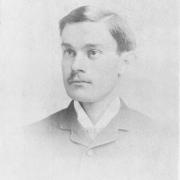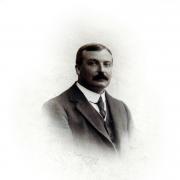Keeping Kent’s roads clear in winter, especially those in rural areas, is an essential task, but what’s life really like for Kent’s gritters?
Tell us a bit about you
My name is Chris Varney and I have just turned 29. I have lived in Tonbridge for 19 years and worked out of the local depot since I was 17. Outside of work I am the kit manager for my local football team, the Tonbridge Angels, and have supported them for a number of years. It keeps me busy – I really enjoy helping my local team and seeing them do well.
Tell us about your job
I started working on the roads when I was 17, working out of the Haysden depot in Tonbridge, learning the ropes when it came to roadworks. I became involved in winter maintenance very early on, not as a driver but as the weighbridge operator. This gave me a taste of what was to come as I loaded up the lorries for their gritting runs and weighed them in and out, listening to all the stories the drivers had from years past.
As soon as I hit my 21st birthday the company put me through my LGV course so I could take on my own gritting route.
Recently I changed roles within the company and moved to our office in Aylesford, so my day job has changed from working on the roads to planning the works. I’m Operational Controller for Ashford depot, which involves me planning the work for our teams.
Describe a typical day
My typical day has changed slightly due to my new office role, however, when it comes to the gritting not much has changed there at all. I get up and start my normal working day at 7am.
Around midday we receive a weather update from KCC informing us what gritting action will be needed, if any. The finish time on our gritting runs is worked out depending on when the road surface temperature is predicated to go below 0ºC.
A typical run for the evening would have a finish time of around 9.30pm. So I carry on with my working day until my finish time of 4pm, then I head home to grab a quick bite to eat and have a shower before going back to the depot in Tonbridge.
I then complete my vehicle checks, weigh the vehicle out and start my gritting run. When the weather is particularly bad we will also have to carry out a morning run. In this instance I will finish the evening run, head back to the depot, unload any leftover salt and wash the truck down.
Then I head home to get some shut eye before the next run. A typical morning run will have a 6.30am finish time so I get up at 4.30am, travel to the depot and get ready for the run. Once I’ve carried out my vehicle checks I drive over the weighbridge to make sure I am not under or overloaded and then head out on the route.
Once the route is finished I head back to the depot to repeat the process of driving back over the weighbridge, weighing the lorry back in (this is to calculate the amount of salt we have used.)
Once this is done I unload any excess salt and then wash the lorry down to remove any salt that has accumulated on the run to prevent rust and mechanical failure. Then I head back to my day job in Aylesford office and the whole process starts again.
What do you enjoy the most?
It may sound a bit cheesy, but I enjoy making sure the roads are safe. I am responsible for my route in Tunbridge Wells and I try my best to keep the roads moving throughout the winter period and I take pride in that. Our job can be very hard and tiresome at times, but the people I work with definitely help me get through that. When the snow hits, you could be working around the clock to try and keep the roads open and you do feel the strain, but the lads in the yard always put a smile on my face.
What about training?
We recently completed a Certificate of Professional Competence course about winter driving that acted as a great refresher course. Things do change over the years and courses like this help bring new working practices to our attention.
I have completed multiple courses over the years on winter maintenance, which have all been helpful, but by far the best training is actually experiencing the job.
For example, you can learn all the theory in the world but until you have experienced driving a fully loaded gritter in extreme temperatures, you’ll never know how you will truly react. The courses have been very useful over the years and I’ve used the knowledge they teach first hand, but some things you just need to experience.
job satisfaction?
That’s a tricky question and I’m not going to lie, the early morning starts after limited sleep are not fun!
However, I have a big sense of pride for my route and once the winter is over and the roads have been kept running, I feel like I have achieved something.
The team I work with in the depot makes the job just that little bit more enjoyable and does help you get through the hard times, we have a massive sense of unity.
Find out more
Keep in touch by checking Kent County Council’s website: www.kent.gov.uk/roads-and-travel/what-we-look-after/winter-service. You can also get local gritter and forecast updates at: [twitter symbol] @GrittingKent.
w



























